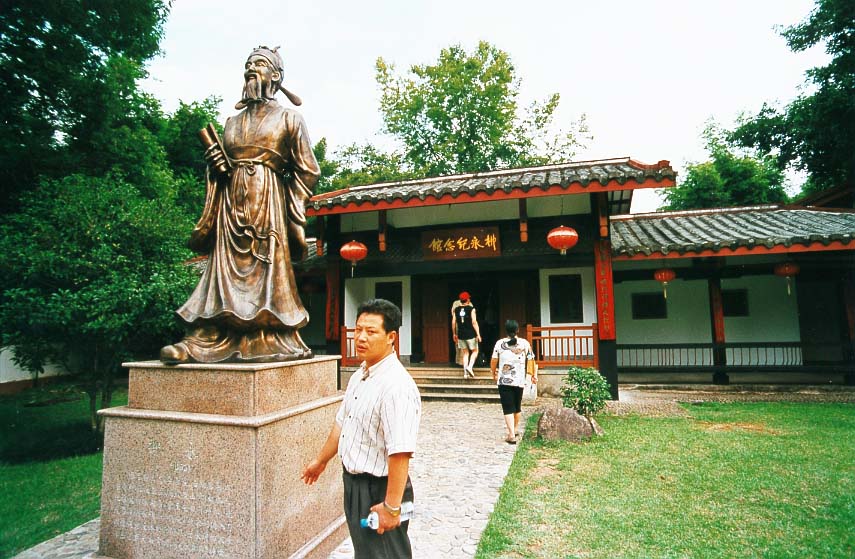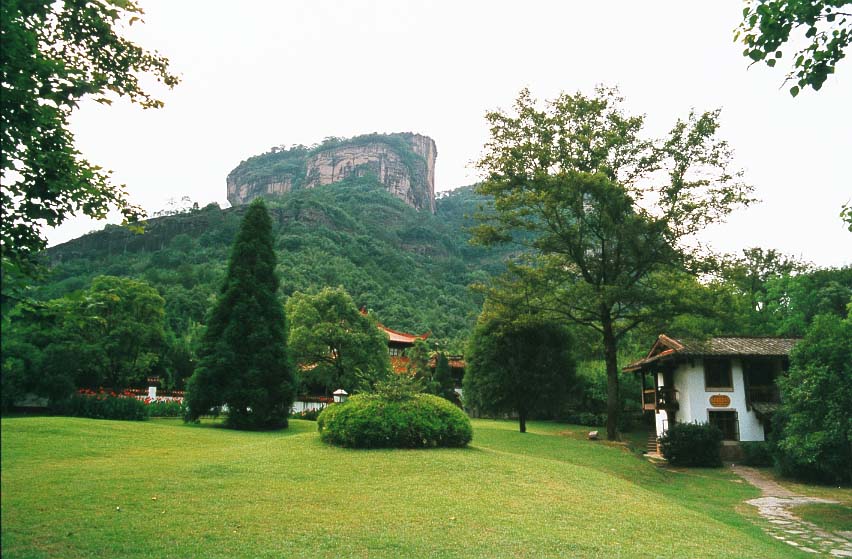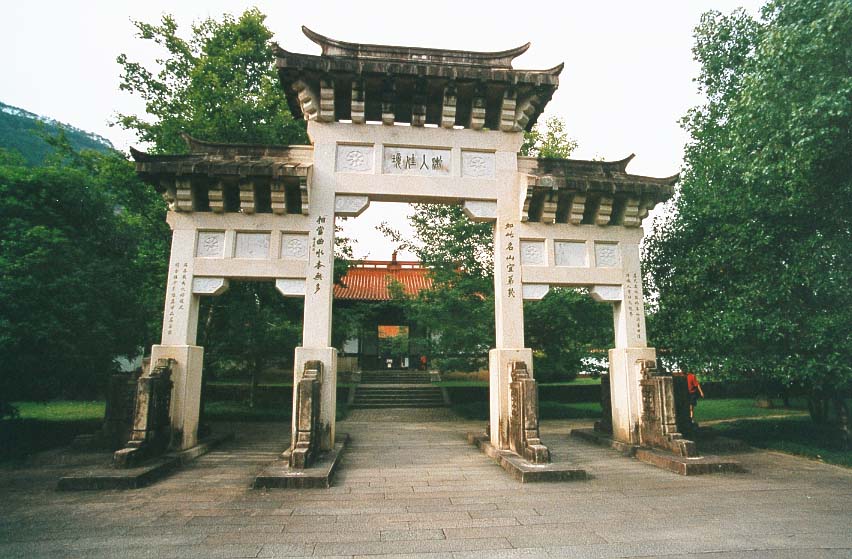
Museum
After the raft ride, we visited a nearby museum/shopping street that turned out to be right next to our hotel.

Here is a view down the main street of restored buildings.

Many articles were for sale, but we resisted.

There also was an outdoor museum to the memory of Zhu Xi, a twelfth century philosopher and teacher who proved to be very important to the intellectual climate of China. He gave classes in the area, and students came from all around to attend. He taught neo-Confucianism, and held that the individual should be subservient to the greater good (i.e., the state). The Chinese of today revere his memory, and believe that his teaching influenced the twelfth-century enlightenment of Europe in ways that are not generally recognized in the West. It can be counterargued, however, that neo-Confucianism actually hindered intellectual development in the West. leave it to specialists to sort this one out!

A view of Great King Peak, which can also be seen from our hotel (because it is close to this place). This leads me to a mild philosophical point. The Chinese around Wuyishan call structures "peaks" even though they don't necessarily narrow at the top. We might better call them towers. But when in Rome...

The entrance to the outdoor museum to the memory of Zhu Xi.